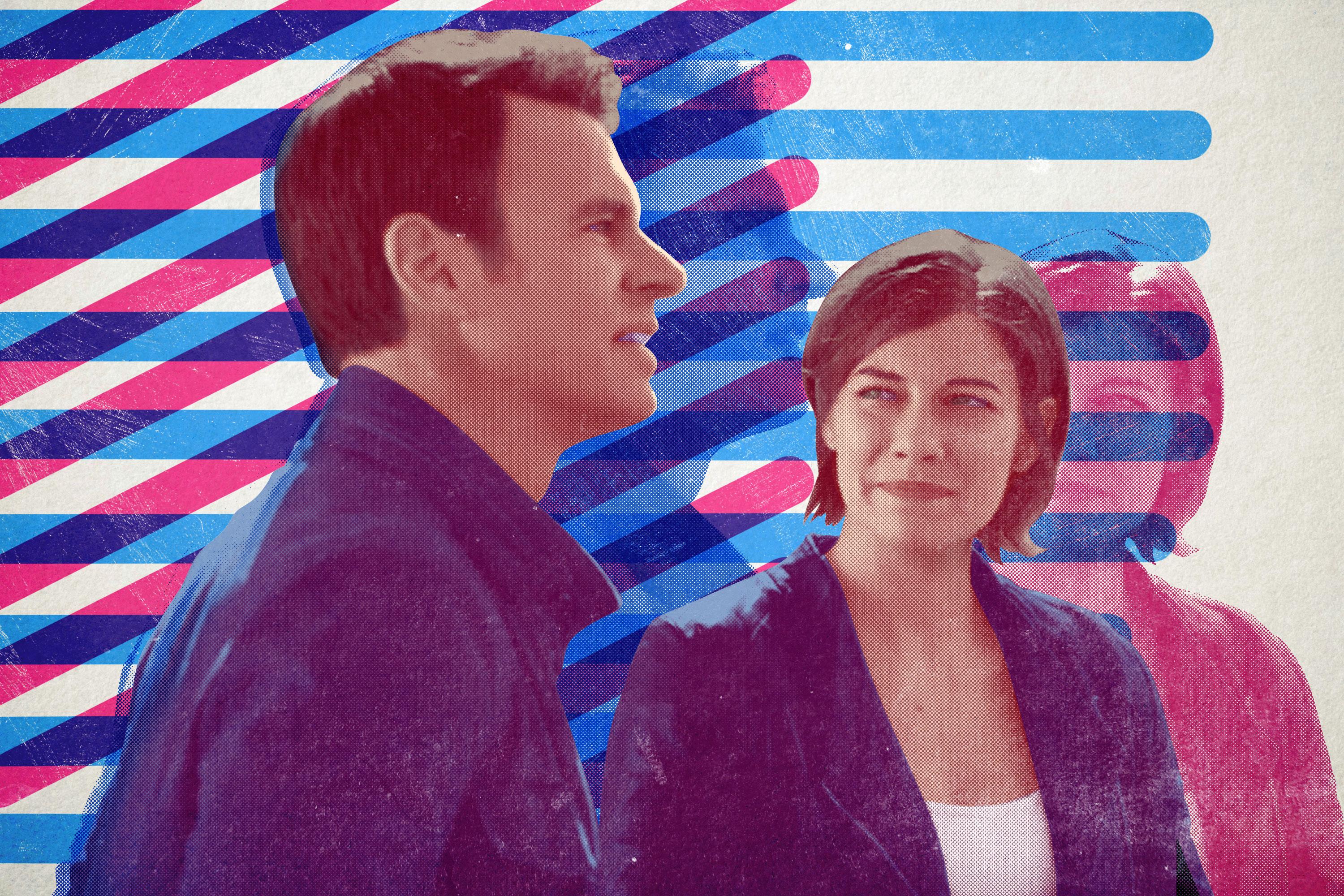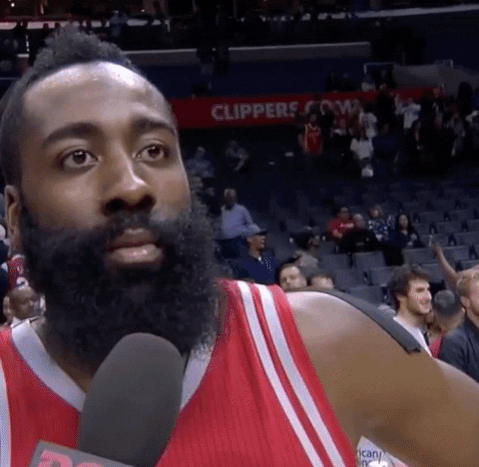
It’s difficult to encapsulate the spirit of a television series in a single GIF. The ethos of Game of Thrones was often bleakly summated by fans with the looped image of Ramsay Bolton telling Theon Greyjoy, “If you think this has a happy ending, you haven’t been paying attention.” That ended up not being the most lasting, representative clip: In the end, the series culminated in ways both happy and bittersweet. But 73 hourlong episodes is a lot to condense into one GIF; 13 episodes of a breezy network dramedy, on the other hand, is a tad easier. And to sum up ABC’s Whiskey Cavalier—a spy series more interested in quirky workplace dynamics than what it takes to save the world—well, these eight seconds should just about do it:

Unfortunately, now that ABC has confirmed the series’ cancellation after one season, that’s just about all we’ll be left with. Whiskey Cavalier, whose finale drops Wednesday night, was easy to love and even easier to follow. The bizarre name of the series—which sounds like an expensive yet super underwhelming cocktail—was the code name for wholesome FBI agent Will Chase (Scott Foley), who teamed up with hard-nosed CIA spy Frankie Trowbridge (code name Fiery Tribune, played by Lauren Cohan) to take out bad people mostly across Europe with the help of a plucky unit of espionage archetypes. There was the one who hacked (Edgar Standish, played by Tyler James Williams), the one who made cool gadgets (Jai Datta, played by Vir Das), the one who was the doofus boss (Ray Prince, played by Josh Hopkins), and the one who kept them all from wanting to kill each other (Susan Sampson, played by Ana Ortiz).
The series followed a conventional structure, with the team handling a weekly case (that sometimes overlapped with an overarching plot about a vague, insidious government conspiracy) and learning more about themselves along the way. Whiskey Cavalier reveled in the fact that Will Chase was a soft boy—his favorite film is You’ve Got Mail, he overshared with his team to an uncomfortable degree, and he always preferred hugs to handshakes—while also showing how harmful an empathetic streak can be in a profession that orbits around deception and murder. All in all, it was a lighthearted spy show featuring lots of attractive people flirting with one another in nice clothing while traversing through dreamy European locales. Sometimes you want to watch a series like Barry mine the corrupted soul and dark emotional depths of its depraved antihero; other times, though, you just want to kick back and watch five actors take turns dunking on Scott Foley for being such a dweeb.
But the countdown clock for Whiskey Cavalier is about to strike zero. ABC Entertainment president Karey Burke deemed the decision to cancel the series “tough,” though such a concession is hardly a salve. It might seem shrewd from the outside, but axing the show was a strategic choice likely defined by the fact that Whiskey Cavalier wasn’t produced in-house—thus rendering the show more expensive—and that it got a huge promotional spotlight ahead of this year’s Super Bowl, which made its unspectacular ratings even more indicting. Whiskey Cavalier, which is produced by Warner Bros. TV, will be shopped to other platforms and networks in the hopes of finding a new home, but that’s not the kind of thing fans of the series should bank on. Shows can get revived on other networks (see: Brooklyn Nine-Nine on NBC, The Expanse on Amazon Prime, The Mindy Project on Hulu), and while there are some ardent Whiskey Cavalier fans doling out hype for the series online, its ostensible revival isn’t exactly getting the backing of massive personalities like Lin-Manuel Miranda or George R.R. Martin. But whether or not Whiskey Cavalier actually gets a revival doesn’t address the larger dilemma facing similar shows on broadcast networks: Chances of a long shelf life are becoming increasingly slim, and for every network TV series not tagged with a Dick Wolf executive producer credit, that isn’t going to change anytime soon.
Ideally, a show like Whiskey Cavalier wouldn’t be on life support in the first place. But the series is just behind the times. Aside from Whiskey Cavalier having a premise that felt plucked straight from the ’80s, the heydey of will-they-won’t-they crime shows (Remington Steele, Moonlighting), its early cancellation is emblematic of the problems facing broadcast networks in the streaming era. The old way of watching television—parking your butt on a couch at the same time every week alongside millions of other viewers—may very well have gone extinct this Sunday with the culmination of Game of Thrones. Outside of live sporting events and award shows (which are also bleeding viewers), appointment viewing is becoming a thing of the past, and broadcast networks continue to struggle to catch up. Measuring a show’s success via traditional ratings just doesn’t work anymore, even if it’s how networks typically appeal to advertisers. With a few notable exceptions like This Is Us, Grey’s Anatomy, and The Good Doctor—not to mention The Big Bang Theory, which just ended—widely successful network shows are increasingly hard to come by.
Which is not to suggest that Whiskey Cavalier, were it afforded extra seasons, would eventually measure up to the massive ratings of The Big Bang Theory or the critical highs of This Is Us. But in a healthier television landscape, it might’ve looked like the other shows that executive producer Bill Lawrence has doled out (Scrubs, Cougar Town, Spin City)—successful enough to eventually end on its own terms.
The troubles facing traditional TV are also why it’s harder to justify getting invested in a new series airing on broadcast TV when there’s always the risk of a swift and abrupt cancellation. And while shows on streaming networks aren’t exempt from frustrating cancellations—they can actually be even more infuriating, since Netflix won’t disclose its viewership data and provide any real justification for axing a show like One Day at a Time—those companies are producing enough good programming at the moment to satisfy their bottom line as well as their subscribers.
Whiskey Cavalier’s untimely end isn’t the stuff of martyrdom. It’s just representative of a dilemma for network TV that’s been heightened by the streaming era, and one that’s frequently dispiriting for large swaths of viewers—in this case, the people who loved watching Will Chase stop to admire an old couple dancing together at a neofascist gathering. (He’s an optimist at heart!) Many, myself included, enjoyed every minute of Whiskey Cavalier. But when it comes to watching network TV in 2019, knowing that the plug gets pulled with increasing swiftness makes it hard to ever meaningfully invest in something. You might as well play it safe and stick to the popular shows on Netflix, Showtime, and HBO, the ones you know will probably be allowed to go out on their own terms. An ending—even if it’s unhappy, even if it’s bad—is better than no ending at all.

